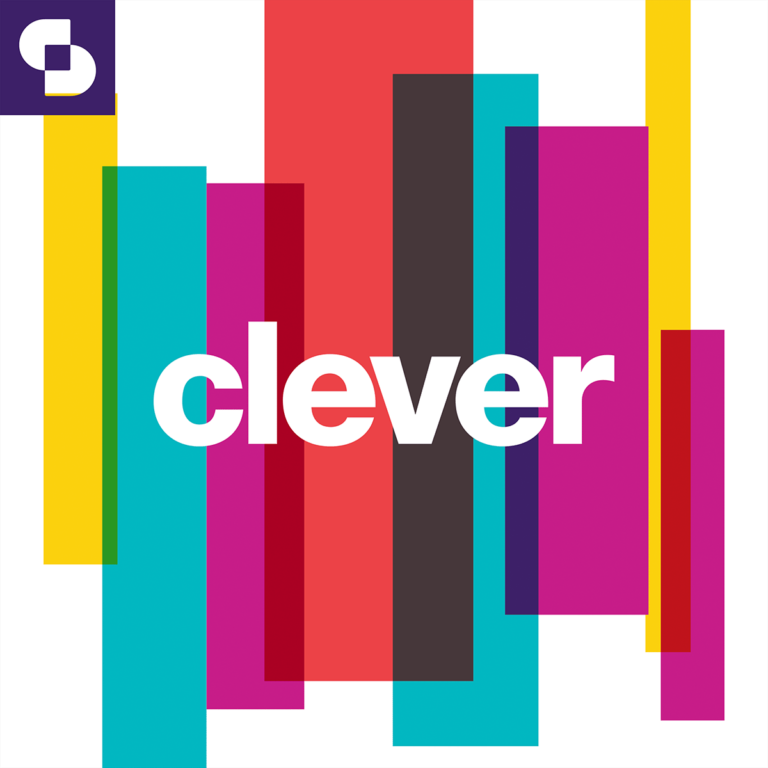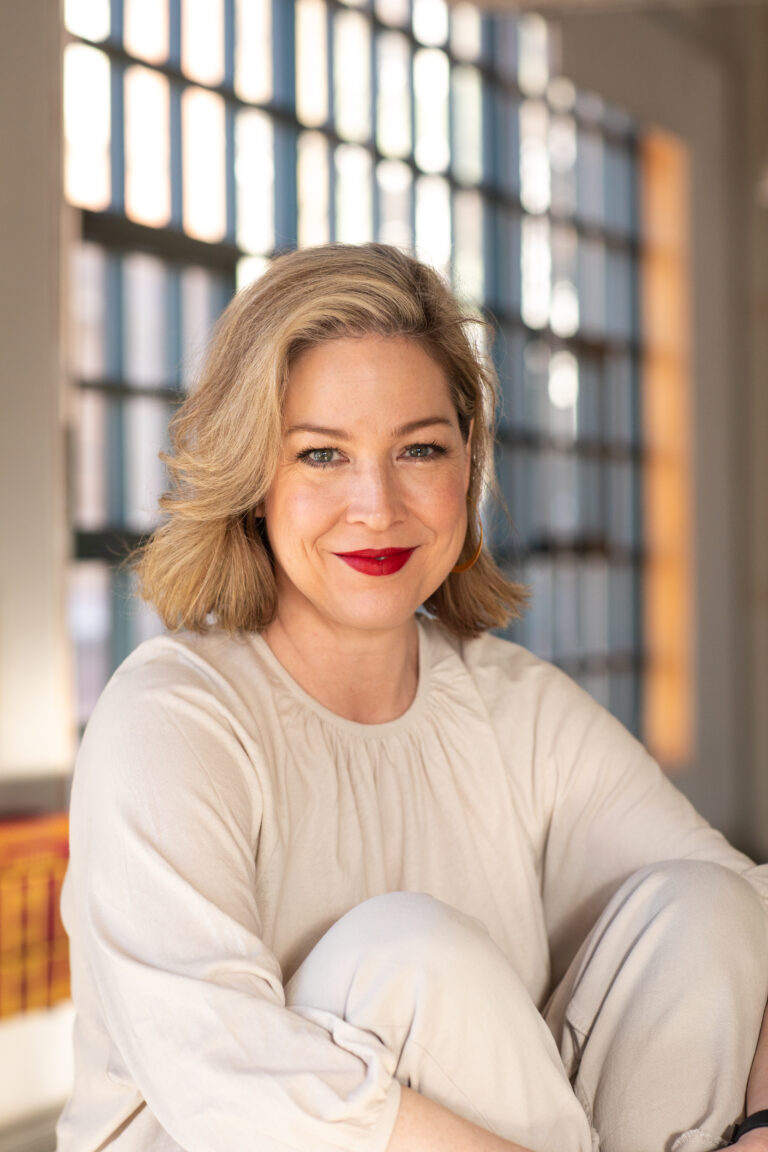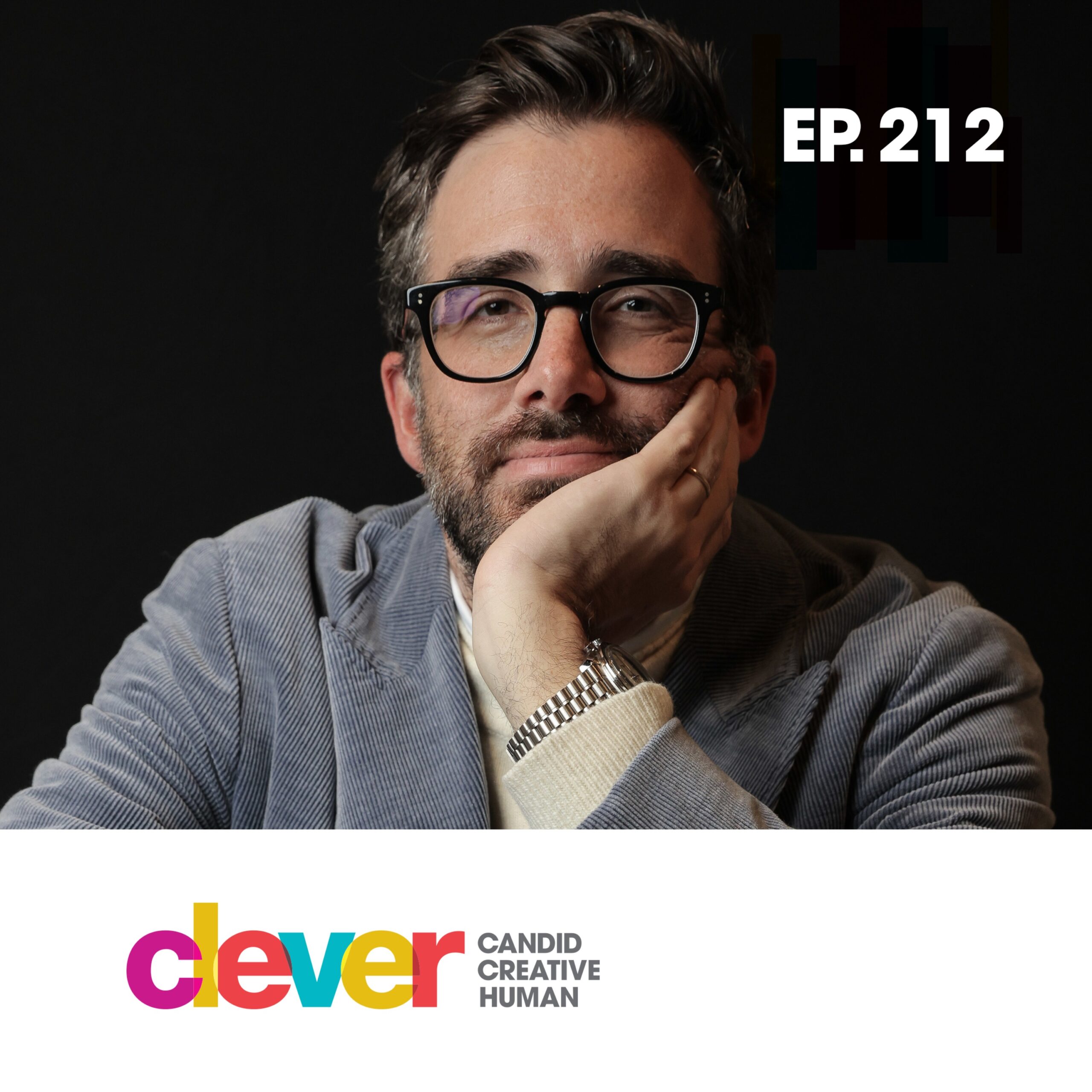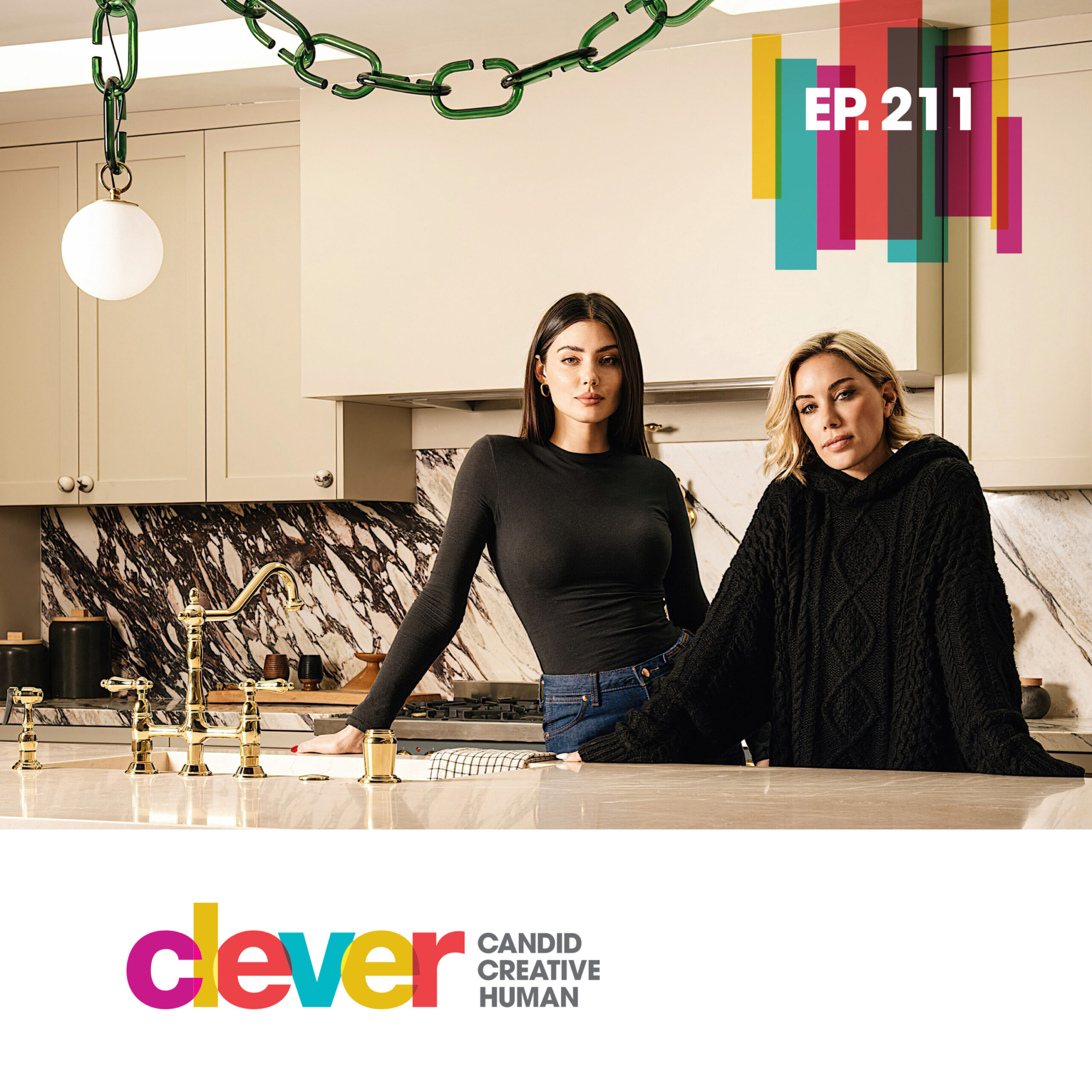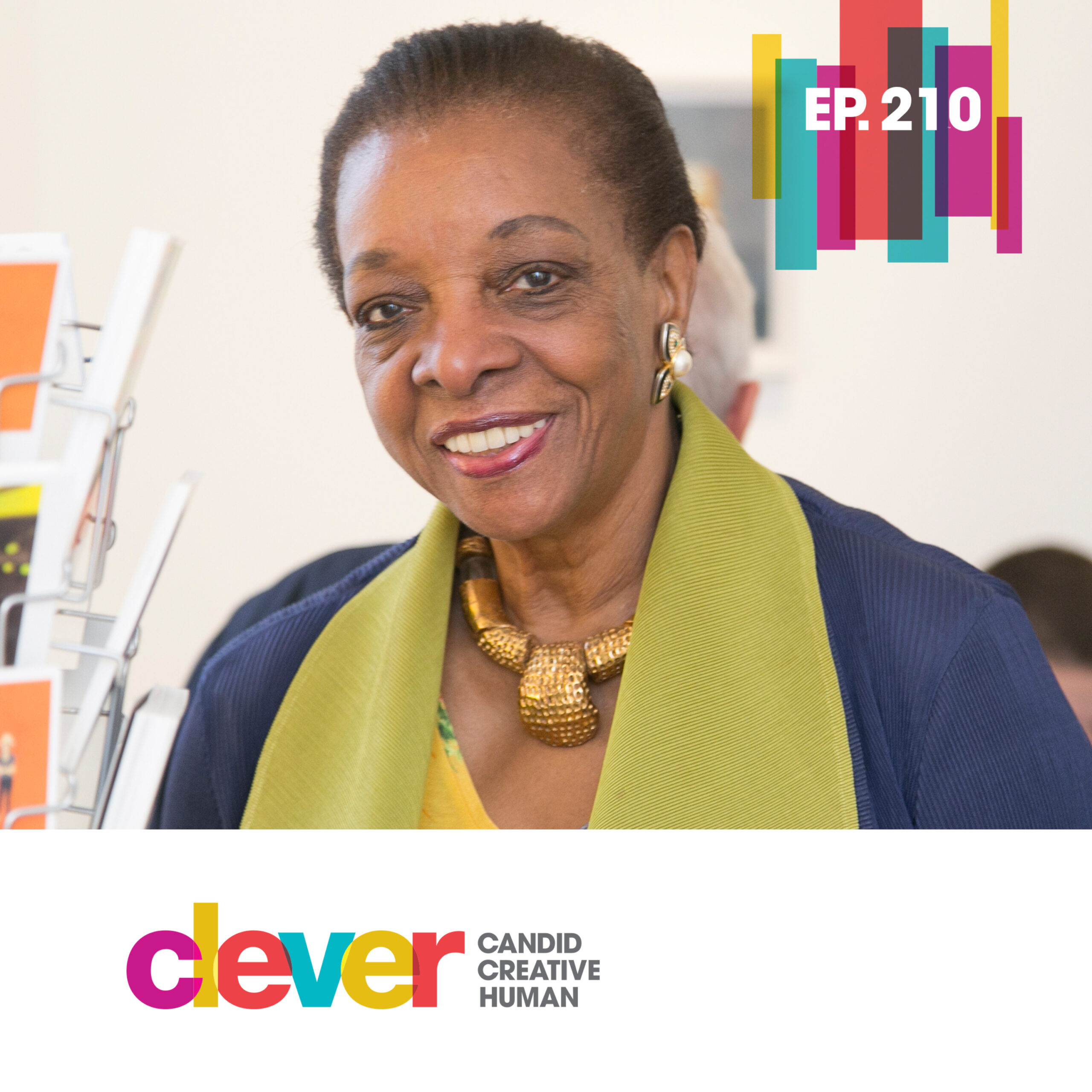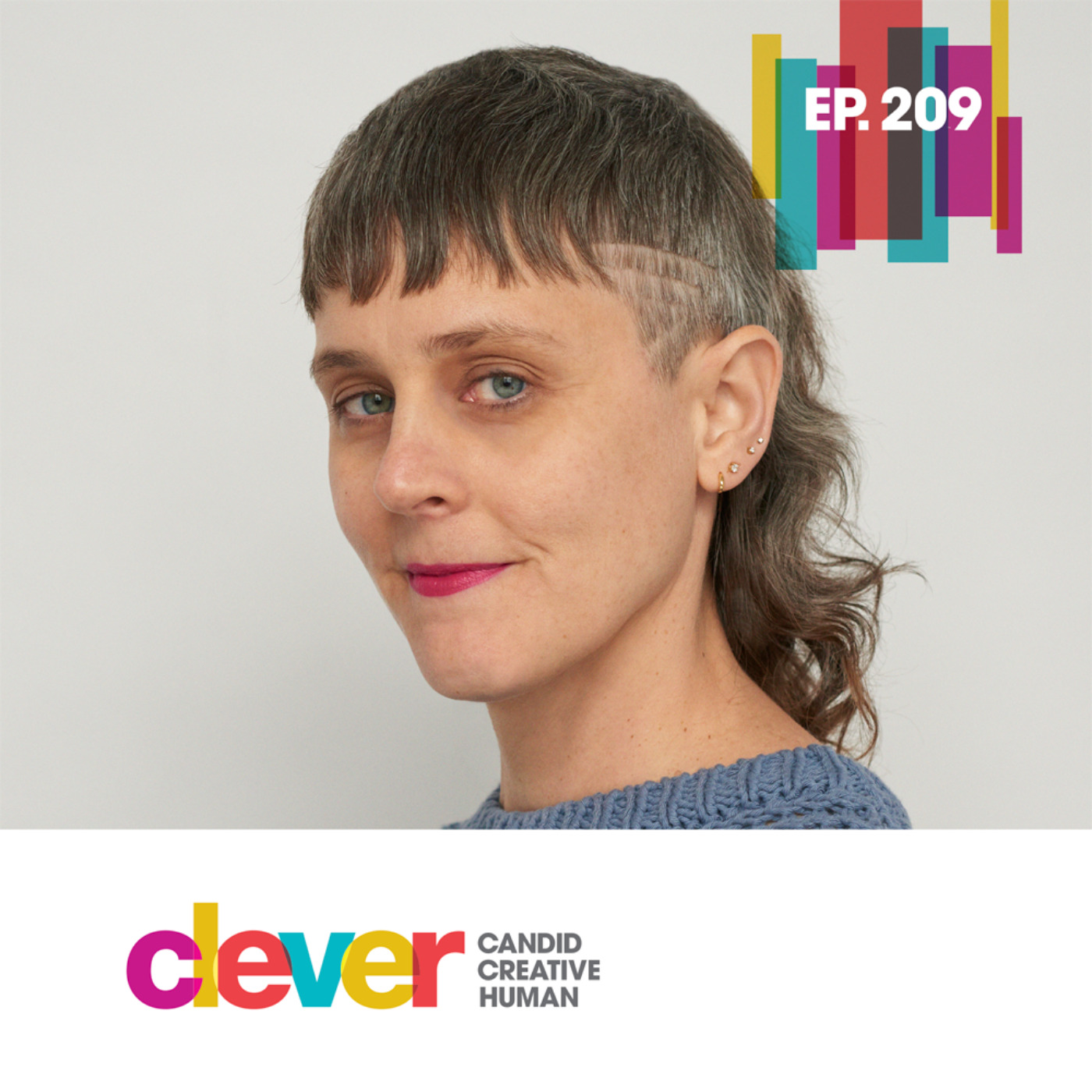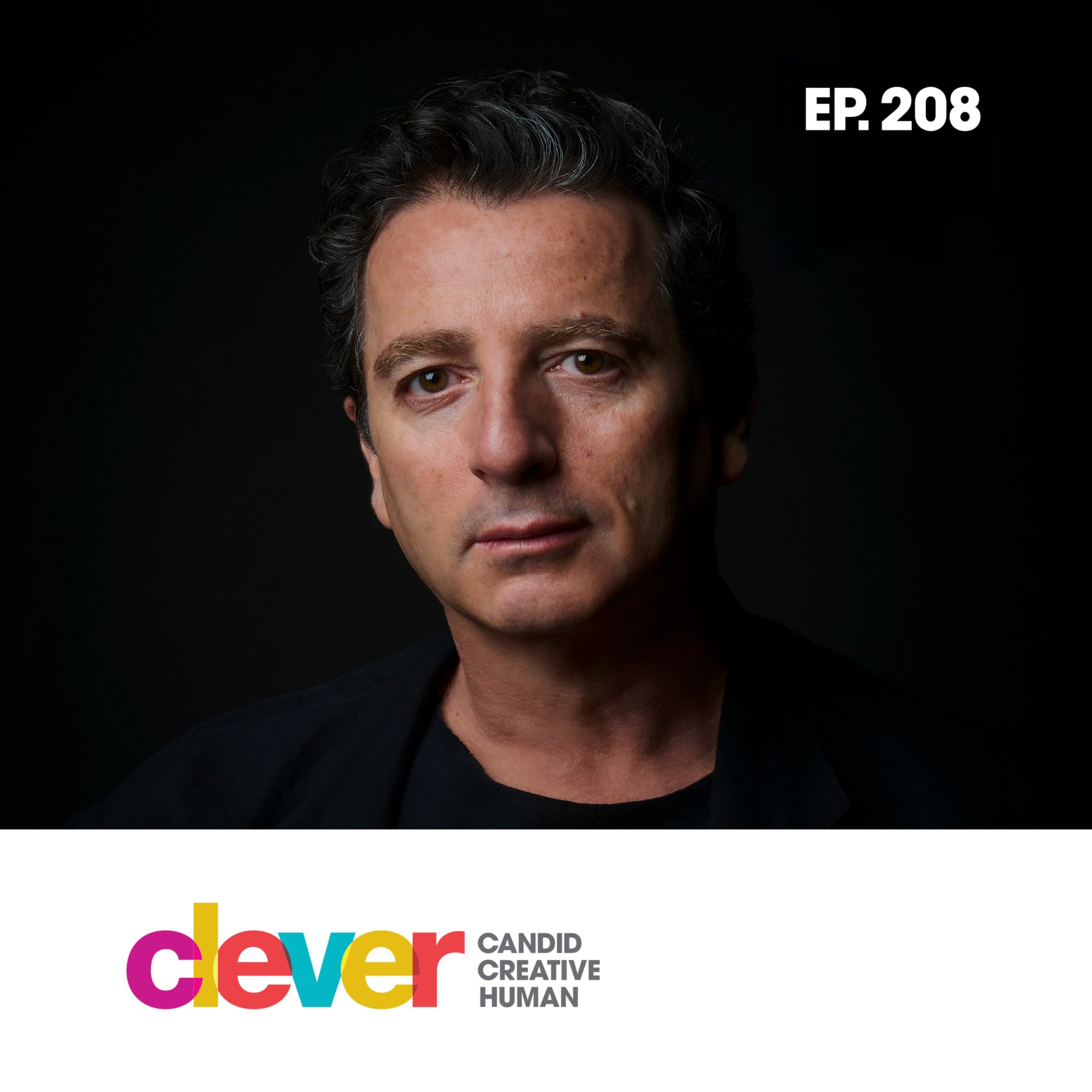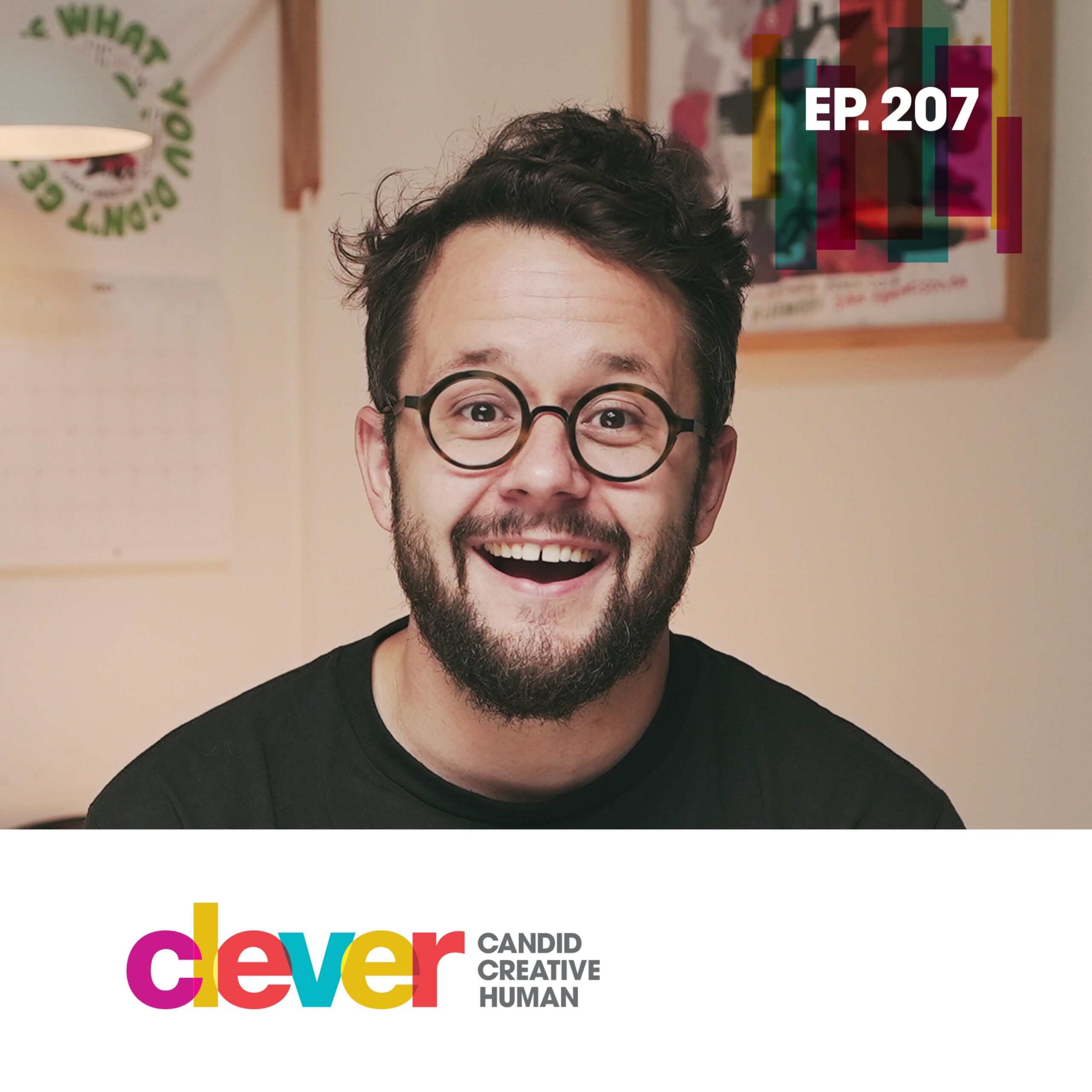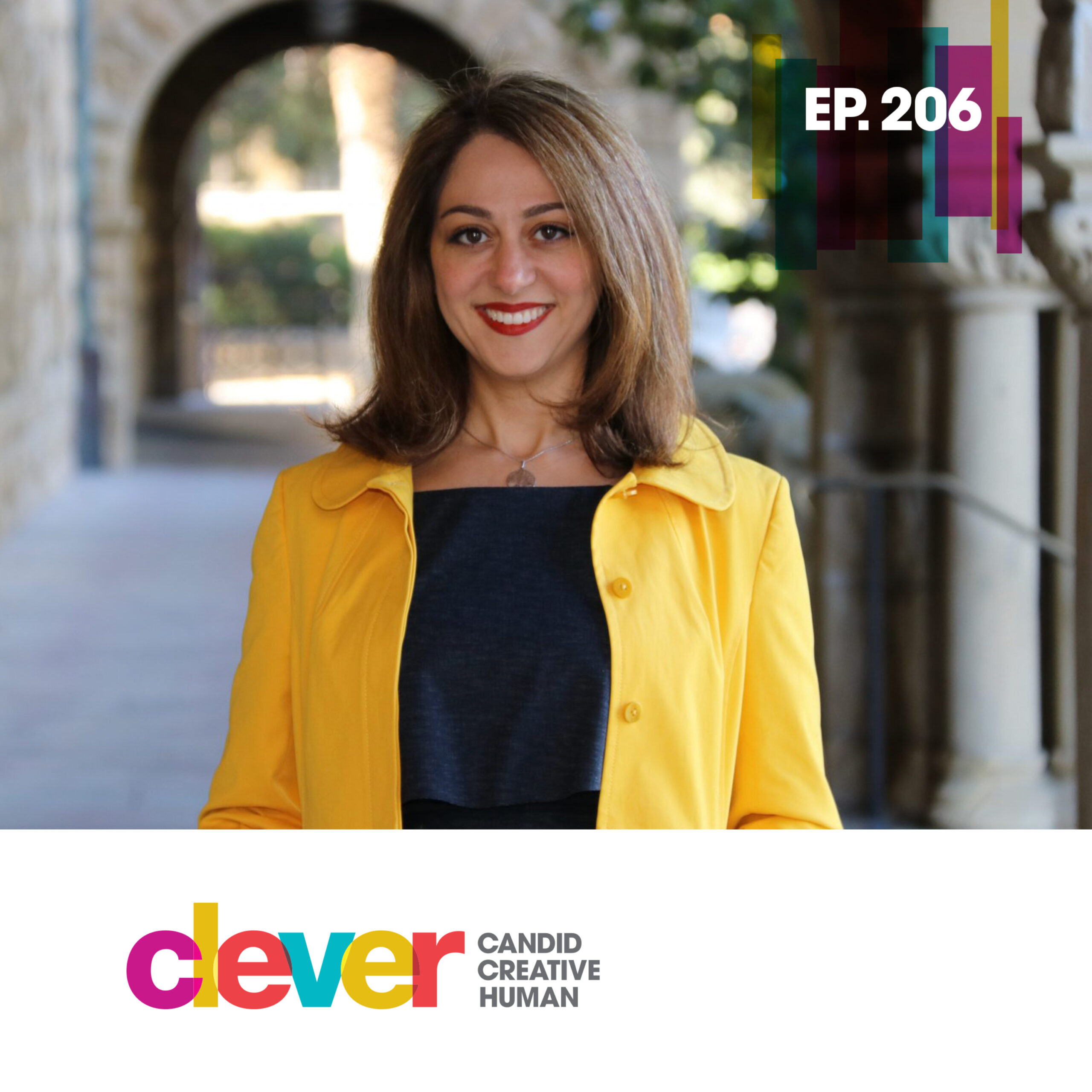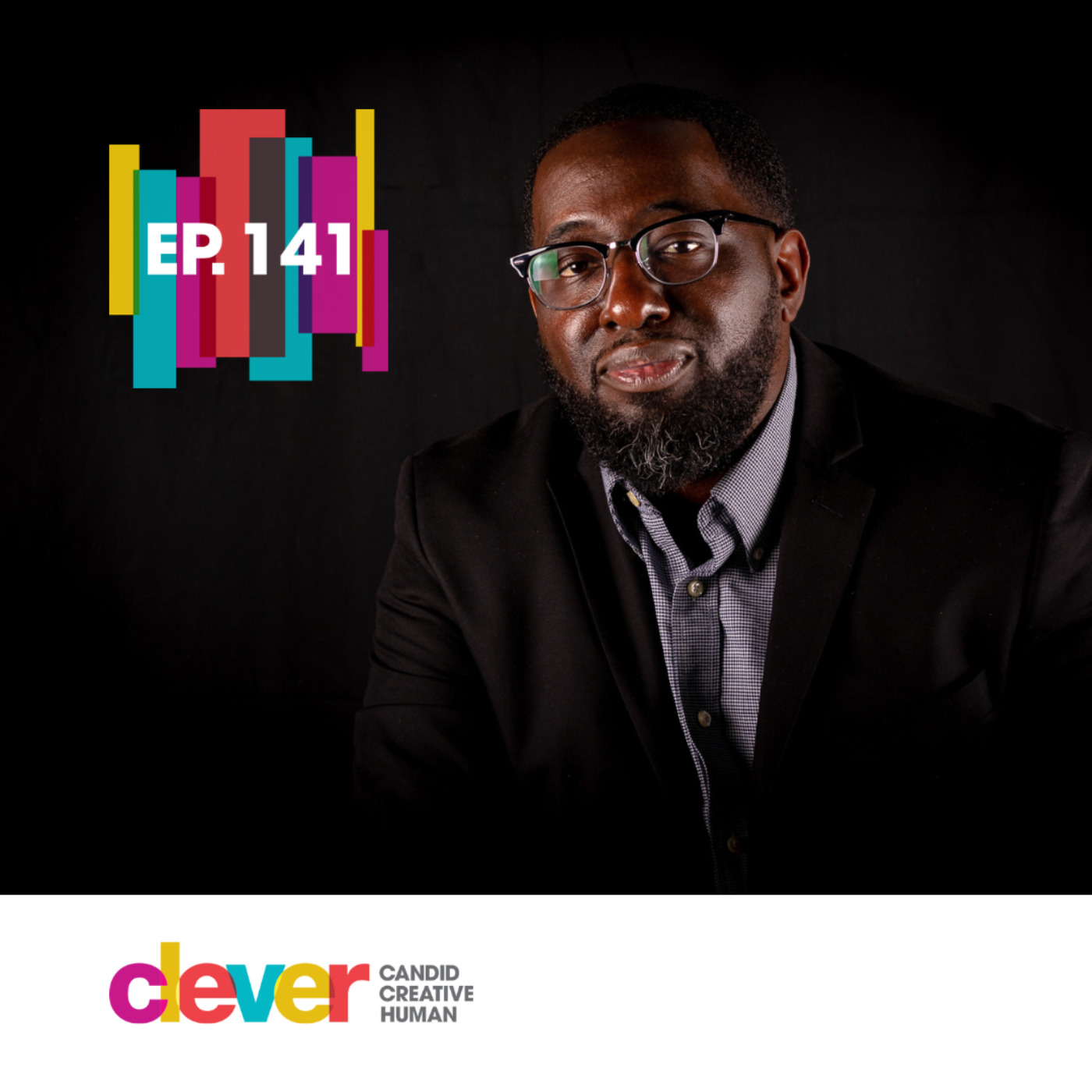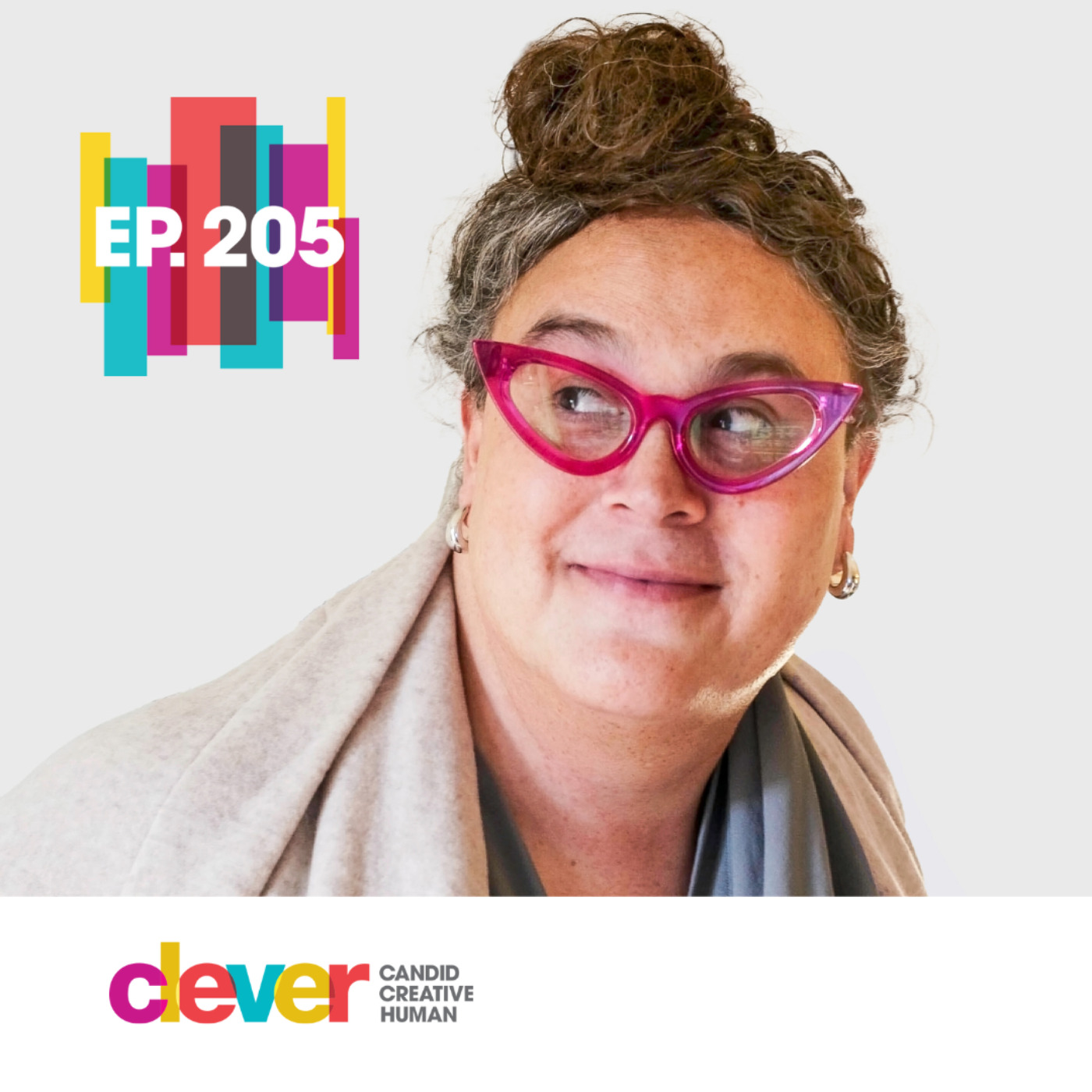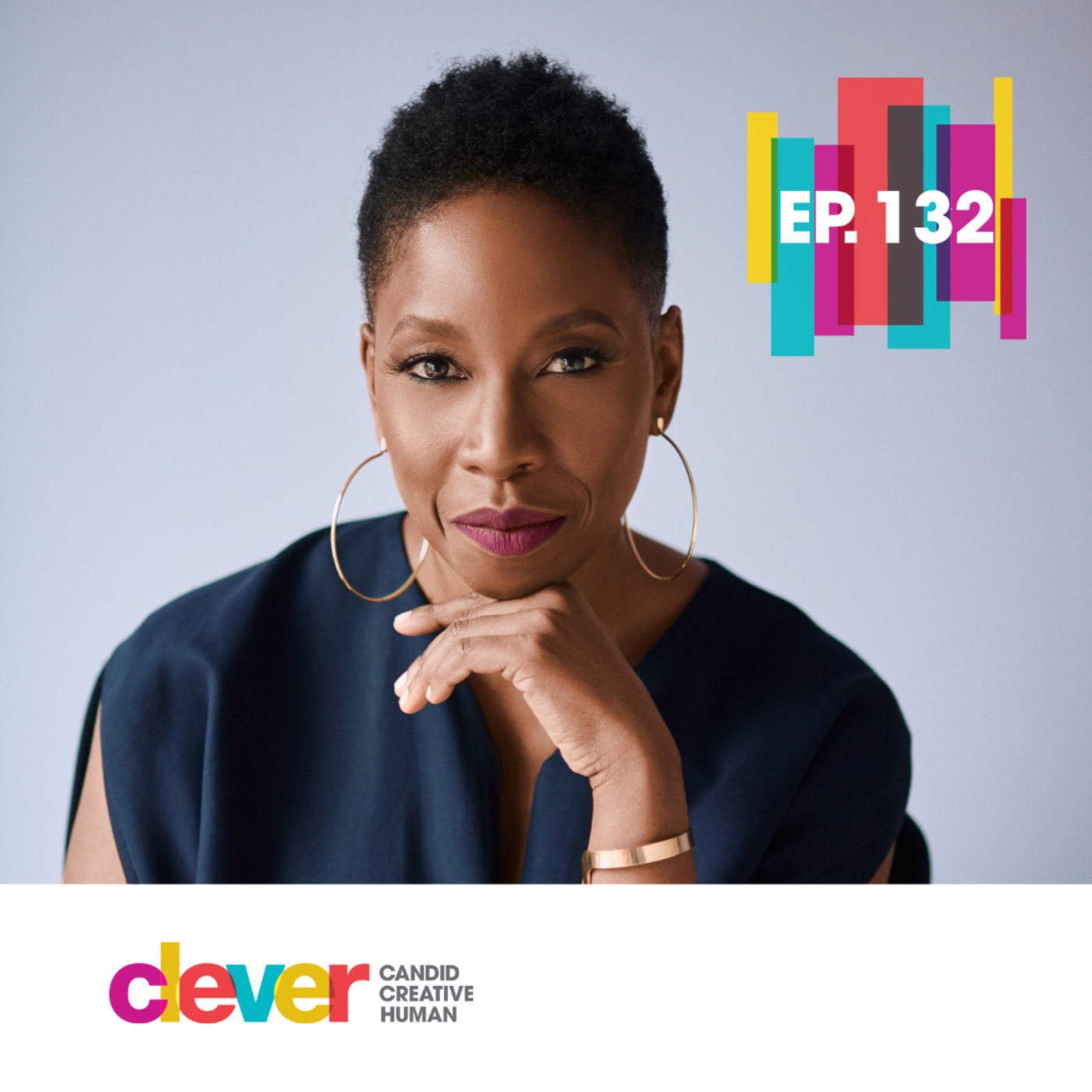Julian Lennon’s adventurous spirit sprung from a semi-nomadic youth in the English countryside where he spent his days as a farm hand and climbing trees. He navigated the tricky world of being John Lennon’s son by finding peace in nature, which he channels into his many creative endeavors. Through music, photography, film, books, and philanthropy, Julian’s path reflects his dynamic, curious spirit.
Images, links and more from Julian!
Please say Hi on social! Twitter, Instagram and Facebook – @CleverPodcast, @amydevers,
If you enjoy Clever we could use your support! Please consider leaving a review, making a donation, becoming a sponsor, or introducing us to your friends! We love and appreciate you!
Clever is hosted & produced by Amy Devers, with editing by Rich Stroffolino, production assistance from Ilana Nevins and Anouchka Stephan, and music by El Ten Eleven.
Amy Devers: Hi everyone, I’m Amy Devers and this is Clever. And today I’m talking to Julian Lennon. Yes, that Julian Lennon – the award-winning humanitarian, musician, fine art photographer, best-selling author, filmmaker, and eldest son of Beatle John Lennon…He has spent his life steeped in creativity, honing his unique powers of observation, and engaged in multidisciplinary modes of artistry, storytelling and stewardship. His solitary youth in North Wales was both wild & free, deeply conflicted… creativity became an outlet early on, and he has nurtured his talents throughout his life through a multitude of expressions. By 21 he was already a rockstar, with his first album Valotte, and music has been a constant throughout his life – including hits along the way like Too Late for Goodbyes and Saltwater. Recently, in 2022, he released his 7th studio album, Jude – the name being a reference to his 5 year-old self, Paul McCartney’s inspiration for the Beatles’ Hey Jude. He’s been involved in the production of many films and documentaries, including Executive Producing Women of the White Buffalo, and 2020’s Kiss the Ground – an acclaimed documentary that makes a compelling and lucid argument for no-till & regenerative farming as a practical and scalable solution for healing our soil – and by extension our climate, food and people. As of this recording, it’s currently available for streaming on Netflix if you’d like to watch. He’s also published an New York times best-selling trilogy of Children’s books. He discovered his photographic talent by accident, and has leaned into it, developing a signature of arresting and etheric landscapes, and raw, candid portraits. He’s exhibited widely since his first show, Timeless, in 2010 – and recently debuted a collection of breathtaking skyscapes entitled Atmospheria at Frieze LA art fair, through William Turner Gallery with all of his multi-modal creative output, perhaps the most consistent throughline is his environmental and humanitarian efforts through his non-profit the White Feather Foundation, since its inception in 2007 the White Feather Foundation has saved native lands from being taken from indigenous groups, brought clean water to developing communities, and provided girls with educational scholarships, as well as furnished vital equipment & supplies for rural schools… It’s an unbelievable journey, that has been and continues to be, more about the adventure than the destination… here’s Julian.
Julian Lennon: Hi, I’m Julian Lennon and I live in Monaco, but I travel around the world a great deal and I am an artist who works in many mediums and formats.
Amy: Yes indeed you do. I always like to go back to the beginning. I love to understand the person you are today, but also learning about your formative years. Regarding your early years, what types of things captured your young imagination and fueled your creative growth?
Julian: When dad walked out the door, it was just mum and I and I was fully supportive in whatever mum wanted to do and tried to help her as best as I could along the way. In my teenage years, and even slightly earlier than that, I used to live by the seaside with my mum and my grandmother in a peninsula called the Wirral, which is across the estuary from Liverpool. It’s only about 20 minutes away, but it’s a very quaint seaside, old-school town that remarkably remains pretty much identical today as it did when I was probably about 11 or 12.
Amy: That is a rarity, wow.
Julian: It is. I went back to visit it with my dearest and oldest friend, Justin Clayton, who I used to go to school together, we’ve done world tours together, all of that kind of stuff. And we went back pre-Covid, drove up from London and spent a couple of nights up there. And I was expecting the place to look remarkably different, but it wasn’t, it was remarkably the same. (Laughs)
Amy: That must have jogged a few memories loose?
Julian: I remember playing on the beaches there as a kid, very much walking up and down and going to the old cinema which also was on the beach. I was inspired a great deal by that because we used to go to the cinema every Saturday morning, it was a thing. But shortly after that mum moved to North Wales. We basically lived in the middle of the countryside, in the middle of nowhere for quite a few years. And that had quite a big impact on me. There wasn’t a lot of TV back then, we were just about entering the video era, if you taped something off the TV. (Laughs) And there was obviously no internet and no mobile phones. So you made your own fun. And being on farmland, it was about 12 acres and I used to work on the neighboring farm, I used to help with the lambing, I used to do a number of other things…
Amy: Wait, wait, help with the lambing?
Julian: Yeah, yeah. When the sheep were having their lambs, you helped the lambs come out.
Amy: You were the obstetrician for lambs? (Laughter)
Julian: I was a kid, I helped out. I was a hand on the farm and I put the hay out in the middle of winter, in snow to feed some of the animals out in the wild. But when I wasn’t working, I’d be climbing trees like an idiot. I’d be building canoes…
Amy: Oh fantastic!
Julian: Would go down rivers. And then I got into motorcycles as a teenager, early teenager and…
Amy: Before we get there though [0.05.00] it sounds like you were living pretty close to the earth.
Julian: Oh, very much so, very much so.
Amy: Even if you were higher up in the tree tops.
Julian: I loved nature. It was an important thing for me to be part of that and I think it’s essential for kids that are growing up to be out in nature, to understand what your relationship with it is. I guess that’s why many moons later, I’ve come back to it in a bigger way than ever before, especially with the likes of… not only working with the charity that I founded, The White Feather Foundation, where we try and help around the world. But also with films like, independent films like Kiss the Ground, you know, which in of itself has become a platform which is making great change and great strides, slowly but surely, around America and around the world. Yeah, there are plans to have a few follow-up films on that that will enlighten people further as to not only just understand what’s really going on, but also to be able to make some changes, simple changes that can make a great deal of difference.
Amy: Yeah, that’s really important.
Julian: Yeah, as important as anything else. Yes, the air that we breathe is polluted, a good amount and the seas are polluted and the soil is polluted. We can’t do everything but we can certainly do our bit and definitely my focus, at least with Kiss the Ground and with that team and moving forward is regenerative farming and looking after the soil. Because again, with the air and with the sea, if we don’t look after it, we’re the ones that are screwed. (Laughs) The earth will remain…
Amy: Absolutely, it’s the humans who are fucking themselves. (Laughs)
Julian: Yes, it’s going to spit us off at some point and it’ll be fine. And everything else will be fine again. We’re idiots really, we truly, truly are idiots.
Amy: I hear you. And I want to get further into Kiss the Ground as we go into your career trajectory. But I’m really interested in this young child who was birthing lambs and then getting on motorcycles?
Julian: Well, I was very much a loner, very much, especially in those circumstances. Number one, it was not only awkward being the son of a very well-known person…It was problematic beyond because I would have to… mum was a bit of a Nomad, she traveled a lot, she moved a lot. And I feel I’ve done pretty much the same as that, which I love. But you know, I’d have to go to new schools a fair amount and one of the last ones I went to in North Wales. They were old-school English private schools and they would have an assembly in the morning and if you’re new to the school, the headmaster would say, “We have some new people that are joining us this term.” And then they’d just introduce everybody by name. And then of course, I would be pointed out and said, they would say, “Stand up, this is Julian Lennon, this is John Lennon’s son, from the Beatles.” And I’m going, really? I mean even at 11 years old I’d be going really? You had to do that?
Amy: That’s not fair to a child, that puts undue exposure on you.
Julian: Yeah, from that point on, the trust in people was very difficult to gain because I didn’t know why people liked me.
Amy: Gosh, what a distortion to grow up in.
Julian: Oh yeah, it was really messed up. As you can tell, it’s still a thorn in my side [0.10.00] because I don’t believe there’s any excuse for doing that to a child especially, is putting him in a position where he’s just screwed. I think I came out of that with my one and only best friend that I still have, which is Justin Clayton. That was a tough one, going through a number of schools and approached that way by the school and the community. So it was annoying to say the least.
Amy: I hear you and I’m sure people thought they owned a piece of you…or they had a right to know you more publicly than anybody else.
Julian: Yeah, it pushed me further into quietness, of being shy and not being… because I didn’t trust anybody. I didn’t know who was my friend and that… and so it was yeah, I was quite introverted to say the least. It was a quiet youth for the most part. I think it was around that time, probably about 10/11 that it started getting pretty weird for me, because of that and I would try and avoid being seen as the son of, or being in any circumstance that would allow that to come about.
Amy: Yeah, that would make it difficult to forge your own independent sovereign identity as well.
Julian: Yeah, yeah and it’s only been over 50 years in the making where I feel some sense of myself really. That’s why in 2020 I changed my name, which was already John Charles Julian Lennon, by deed poll I changed it to Julian because I was tired of being the second John and I felt that I wanted to be Julian. I wanted to be myself after all these years. So that’s partly why I called the album JUDE, because it was, I won’t say a coming of age, but it was certainly taking ownership of the name ‘JUDE’ and all that that stood for.
Amy: It’s a reclamation.
Julian: Yeah, very much so, I’m just, well I’m not sad, but that it’s taken this long to get there. I’ve got to say after leaving the business and coming back to it every kind of 10 years or so, I understand again why I left the business because just the entertainment industry in general, I loathe, I really do. There’s some good people in it, obviously, but it’s a horrible life I think. I mean this is why I go on, whether it’s on motorcycle rides or if there’s an excuse, I love LA, I’ve got a lot of friends here, I used to live here. But I went up to meet the writers, producers and directors of Kiss the Ground yesterday, who live in Ojai. So any excuse to get in the car, a little mini with a roof off and go, I’m gone. I love just doing stuff, going places, being outside and doing all of that kind of stuff. I’m just so tired of the industry itself because it always turns your back on you one way or another.
Amy: The way it’s set up, it’s very extractive as opposed to regenerative.
Julian: Very much so.
Amy: And I can see that you would just feel so depleted after answering a slew of similar questions in different towns and…after going around in circles with the promo on this album… a year or two ago when I did some promotional work for my photography, we were doing some very interesting interviews at that time, more like California Homes. I’m trying to think of the other magazines that make sense here. It was like, not Interview magazine, but there’s… oh, why won’t it come to me? Anyway, we would generally discuss with most magazines like that, all of life and why and how things are interconnected one way or another. And when I went back to the whole music thing, they didn’t care about anything else, you know? They didn’t care about the New York Times best selling children’s books, they didn’t care about Kiss the Ground, that it was borderline on the verge of being offered for an Oscar. The White Feather Foundation, all the other stuff that I did, they didn’t care about any of that.
Amy: It doesn’t make any sense to me, since you can hear it woven throughout all of your music, all of this stuff, you’re multidimensional creative and everything is related.
Julian: Yeah, and I learned this lesson even harder when I literally over the last year have not been able to get on any late night show, talk show. Not to either talk, nor perform. I’ve offered myself up so that I can speak about whatever anybody wants to ask, because I have a lot to talk about in regards to the work I’ve done over the last five years or more. And I can’t get arrested. So I’m like, why am I being blocked or do I have to dumb down my situation? Do I have too much to talk about? What’s the deal? I just at the end of the day, and at the end of all this promo, I’m going, this gives me anxiety, it stresses me out, I don’t understand why the situation… why I’m in the situation I’m in? I’ve got nothing but love and much more to offer on so many levels and talk about. This is why I’ve kind of decided literally in the past month that I’m just… I’ve just decided I’m just going to get on with the creative work now and screw everything else. And be happy in that process.
Amy: It sounds like you’ve made a few really heavy duty life decisions in the last few months.
Julian: I think that’s the only way I can be happy, which is basically the idea that believe in yourself and your work and your art and your creativity and just get on with it and lead a happy life. I’ve been at the happy place before and I really, really enjoyed it. But then when you have to kind of try and prove yourself by going out into the media and going on with that stuff, that’s where the ugliness of it all comes into play. [0.20.00] I just don’t like it. And now I understand so much why people pull out of it, because it’s not a pleasant place to be. I mean it’s a different situation if you’re part of the A-team, you’re the Taylor Swifts, this, that and the other. But anybody beneath that, it’s a graft. I used to love playing live, and I talked about it and I had considered it for later this year. But again, there’s a lot of stress and anxiety behind that too. For one, I have the worst memory of anybody I know. I’m not a practicing musician, so I only play to write, when it feels natural. So I write, I record and produce the work, and I work with a lot of other people too on their projects too, and not a lot is known about that. But after I’ve written and recorded and produced it and put it on tape, I forget about it. I kind of move onto the next project, whatever that is, whether it’s music or photography or otherwise, or White Feather. And so to come back to it, it’s like a lot of people say, “There’s a guitar, can you play us something?” And I’ll go, no, literally I cannot play you something. I don’t remember how I wrote whatever, when I wrote it. And that goes for the lyrics too. So for me to even come close to rehearsing for a tour of seven albums, six/seven, that’s a nightmare for me.
But the other thing is, you’ll be lucky to break even these days, unless you’re one of the megas, you know? And so you’d have to really, really love playing live to want to do that, to just break even after slogging yourself on the road. But also again, for me, because I have all these other little careers now, not so little careers, it’s a timing thing as well. I love too much of the other stuff that I’m doing now. Maybe I’ll do it further down the road, So it would really be about the love of playing live again. And I don’t have that enough within to consider that right now. But I am strangely doing, I have a dear friend who lives close to me, who is a great singer/songwriter. And he plays all the bars, the clubs, the restaurants, that’s how he makes a living, up and down the coast of France and Italy, not a bad gig. He works his hiney off, no question about that, he’s a grafter. But I’ve asked him if I can pull him aside, give him money and in his time off to teach me his favorite 10, maybe 20 songs. So that can be from Bob Marley to maybe Dillon, a few others, a real mix. And I’m going to graft at being able to do that in between everything else. Just to see if once I’ve learned this stuff, if I enjoy it, and then actually when he goes out on the road, doing his gig, I’ll sit in unnamed as a guitarist and backing singer for him. And I want to see if that sparks that life and that enjoyment again, to falling in love, to having fun and playing live and doing…
Amy: That sounds actually like a really interesting experiment, especially if you’re in stealth mode. People don’t know who you are, so there’s no expectation. You’re playing covers so it’s not about whether they like your music or not. And it’s really about, do I like connecting with the audience? Do I like this sort of transitory creativity that is renewed every night, which can be destabilizing or regenerating, depending on how you metabolize it. But you wouldn’t have that information if you were touring in support of JUDE. I like that experiment, keep me posted.
Julian: Yeah, so this is to know whether I still have that love inside of that connection. I know when I’m up there and I’m confident. I do, no question about it. But again, I just haven’t done it for a long time and I feel so settled and comfortable being behind the camera and being behind the scenes that it’s really a place I can enjoy and I can breathe. I can do all the creative stuff without that anxiety, that knot in my stomach that I always… even thinking about it I start, ooh, you know, I have panic stations. Where with everything else that I love, creatively speaking, it’s just a joy to do, it really, really is. So that’s where my head is going anyways, much more into the photography in the future. I just had a great… well it’s still on, a great exhibition in Santa Monica…
Amy: Yes, Atmospheria, at William Turner Gallery.
Julian: Yeah, which the response has been fantastic.
Amy: I mean the photos are just arresting… they take your breath away.
Julian: Well thank you. The weird thing is that I thought as a photographer, at least in the traditional sense, it was much more about being a gorilla photographer in many respects, if I was considering a collection, we’d be talking anywhere between 20 images, maybe 30-40, I mean 50 the biggest collection I did was one called Cycle, which I showed around the world and was able to really do a great show at the Leica Gallery here in LA. And that was pretty special too a lot of my earlier photographs were know as painterly, because they were just soft clouds and then… and I loved all that stuff. But I thought as a photographer I should be more focused, I should be storytelling, I should be doing all of that kind of stuff. And I have done to a certain degree. Cycle was about the cycle of life in the South China Seas and how people survived. And then you have Charlene Wittstock who became Princess Charlene of Monaco. And I love all of that too, but always kind of wanted to get into the… I guess the more artistic side of that stuff. And I’d never really worked on such a big scale before either. And my love initially at school was being an artist, before music, my medium was really pastels, that’s what I loved, yeah.
Amy: Were you figurative or were you abstract or how were you expressing yourself…
Julian: Figurative for the most part. I drew people but I did wander off a little bit because I found with that particular medium, you could obviously blend, which is what I loved, is that you could fuse anything and everything in that medium.
Amy: It’s all making sense, your photographs also kind of have that kind of ethereal quality…But your life does too because you’re blending all of these different creative pursuits, they all bleed into one another.
Julian: Yeah, and aside from it, then I fell in love with cooking. I really was considering going after being a chef at one point. When I first moved out of my home with mum, I had like a five pounds a week, which I guess would have been many $7 or $8 back in the day. And I survived on Heinz beans on toast for a very, very long time. Until I got basically tired of Heinz beans on toast. Still love them occasionally though, memories… good cup of tea, builders tea and beans on toast. Mum started showing me, oh, throw some onions in there and some different spices. And so I started learning about blending on the food side. So the majority of the food that I make now is fusion in many respects. Some traditional stuff, but nothing follows a recipe, nothing at all. And I’ve been involved in several restaurants and still am.
Amy: In what capacity?
Julian: Well, I was just a partner, I was a partner in a restaurant that did very well back in the day, but what killed us off was actually the writers strike and the financial crash in 2007/08, where we couldn’t afford to pay the rent anymore, nobody was coming to… and this was at our flagship one out here in LA, it’s a restaurant called Blowfish, sushi to die for. Anyway, my partner Jason and our partner Ritsu, the chef, they are looking to open up in Dubai. I didn’t feel I had any interest in Dubai, didn’t have a connection with that place. But maybe this will show me something different, I don’t know. But my partner, Jason, says he loves it out there, so I’m going all right, well I’ll come visit, and we’ll see how things go. During Covid, we were actually making up recipes for a new, another new restaurant venture we were going to do, but Covid killed that as well. One thing at a time.
Amy: I was going to ask you about that. The gear shifting that you do, shifting between all these different projects, you must have so many irons in the fire and balls in the air at one time, how do you navigate…
Julian: I like that. Listen, I was in the music business, still am to a degree, for over 30 years, if not 40 years. That’s why I happily moved on to photography came into play and then documentary work came in and then the children’s books and The White Feather Foundation. I like to move. It’s like for me sitting on a beach, give me about 20 minutes and I’m twiddling my thumbs. It’s like if I arrive in a new city or a new location, I’m going to rent a car, look at the map once, get lost and find my way around and know the city after a few days. I can’t sit still, I have to absorb and learn and sense the place emotionally and by food as well of course. I don’t think I’ve travelled enough, to be honest with you. And when I did, it was mostly on tour and that was in the back of a bus or a plane and the hotel and the gig. That was that cycle of life…
Amy: Right, you don’t have your own schedule to go exploring really?
Julian: Well, that was fine in the old 20s and 30s, but we were all a bit mad back then. We just wanted to get mad. (Laughs) We weren’t really overly interested in the cultural experience of the locations we were going to. I love moving, I love travelling, I love driving, I love discovering. [0.35.00] My ambition is to travel a lot more…
Amy: I was going to ask you about your photography and travel. Is it the travel that informs the photography or does the photography inform the travel?
Julian: Partly how this started was going on trips for The White Feather Foundation, who we had aligned ourselves and learnt a lot from organizations like Charity Water, Scott Harrison. He was the one that said, “Come on out to Ethiopia.” And I’d never been on any kind of trip like that ever before. So at the same time, we were talking to the UN about their millennium village projects and so because I was going to be in the same continent, I aligned that with going to Kenya before meeting up with Scott in Ethiopia. In Kenya I did a series of photographs of the schools that we visited, the health clinics and all the issues that they were facing, that’s where, the Cynthia Lennon Scholarship for Girls came out of that trip, because I learned so much that’s just not in everyday education. You really don’t hear about other countries enough in the news, especially in America more than probably any other country in the world. They shy away from information from the rest of the world, which is really sad because I’d have to hear from friends or even online if I’m looking at something else and I’m going, because I was thinking of going to New Zealand where I’ve never been. I have seen so many shows and know quite a few people from out there and it’s so stunning, so beautiful. I’m afraid that if I go there, I’ll never come back. (Laughs) So I was thinking about heading out there for my upcoming birthday and my friend who lives out there, she said, “Jules, have you not heard about the cyclone and the flooding and everything, and the deaths that have been going on?” What? Anyway, I think you have to move around to find out what’s real or not these days, half of the time. But it’s certainly those trips to Kenya and then Ethiopia, really opened my eyes into… you think traveling through Europe or whatever is enough, it’s never enough. I can’t wait to go back; I just want to explore more and more and more. But the world can be quite a scary place, no question about that. And you want to be organized, I think at least safe with ones travel where you’re going.
And I think that’s why if you can do trips like that with organizations or NGOs already in place, that you feel safe and secure with and that they know the area, then it’s much more comfortable to be able to do that because again, as quite a shy person, initially I still have to push myself out the door with some of the anxieties that I’ve had over the years. I’ve always had anxiety to a degree, but this last year or so has been really full-on.
Amy: Why do you think that is?
Julian: It’s all the unknown. Again, even the idea of touring and playing, I can’t breathe sometimes, I can’t leave the house, I can’t deal with people. [0.40.00] And it’s tied into depression as well and I’ve had my fair share of that crap too. But I’ve been working through all of that for the most part, but every once in a while you get hit, I get hit hard by it. And I think you just have to ride it through for the most part. There’s certain things you can do, like move, get out, exercise, breathe. I make that much more of a core thing in my life these days. Even if I can’t go… at least when I’m home, I go power walking at least three times a week, for anywhere 5-10km, just to get out. I take the camera because whether it’s down by the sea or up in the mountains, I’ll either go in my little convertible Mini or I’ll go on a motorbike, so I’ll get fresh air at the same time, even if I don’t get a proper walk in. So I had to do that minimum once a week, just to get out, just to…
Amy: Just to stay centered…
Julian: Yeah, even if I’m okay, I’ll just go, no, got to get out. I’ve spent too much time doing this or editing photographs you know, any number of things, it takes my attention away from being outside, being in nature, seeing the sun, feeling the sun on my face or the breeze or the chill, with the walks all of that is very, has become very, very important and I noticed that a lot of people feel, really feel the same way. Not that they’re shutting down, they’re just escaping.
Amy: In some ways the pandemic did us all a service because we had to confront mental health and unhealthy habits and productivity habits that were already in society and then the pandemic made it worse, so we had to confront it. And a lot of people went, I’m just not going to live that way anymore. And I’m not going to power through my anxiety, I’m going to take a step back and I’m going to care for myself and do what I need to do so that life isn’t such a shit show.
Julian: Yeah, I think it did all predominantly come about… I mean I was in Monaco, in France during the pandemic and there were a few places around the world where they were pretty strict. And you weren’t allowed out the house for more than an hour. You’d have a piece of paper. So you were allowed outside in a one kilometer region, area, you were allowed out only for an hour. You had to say what you were going outside for, food or a walk or this or whatever. Where I have a summer home at the moment is probably a couple of hundred yards from the sea. It’s not on the sea, there’s a main road in between. But this is what I don’t understand with the pandemic especially, is that they said no, you can’t sit on the beaches and get some fresh air. So half of my one kilometer circle was in the sea. So I had half a kilometer to be able to go outside, for months and months and months. And that was a weird one. I was on my own, very, very isolated. Scared, really not knowing what was going to happen. Having no idea if we were going to get out of this.I was concerned at first, for the first few weeks, but after I settled into the peace and quiet and just hearing the birds outside, just hearing water and the wind in the trees, I very much fell in love with nature again. This is where it all comes full circle again. And that was really quite beautiful for a while because I just eased into, there is no choice here, this is no escape, so do what you can in the moment. And so that’s when I began to breathe, that’s when I began to meditate in many respects. And I’d work, I’d do photography editing probably or work up proposals on projects. I’d still facetime my manager about [0.45.00] Rebecca out in LA and we’d look forward to our weekly chats on a Friday, so that was Friday nights. But also it was amazing, because I hated the idea of doing Zooms. And she said, “Jules listen, it’s really important, you’ve got to have this one meeting with five people that you don’t know and once this is all over it could make a big difference in how we move forward with certain projects.” And I really hated the idea initially, and then I saw execs of this company and that company, almost in their pajamas with terrible lighting and…
Amy: (Laughs) Yeah and you saw their bookshelves and clutter…
Julian: So it was fan-fucking-tastic. I fell in love with doing it. I said, “No, we’re not doing a phone call, we’re doing Zoom or we’re doing facetime,” I want to see these motherfuckers. (Laughter) What it really did was it put you on a level playing field in such a nice new way. Previous to that I’d been out to LA and we were meeting certain agencies, this, that and the other. And you had to go to the desk and you had to show your ID and they’d give you a sticker saying who the fuck you are and then you’d wait downstairs and you’d be told to be escorted up to the top floor. And then you’d be put in the waiting room up there while… and you’d eventually get to see the person you wanted to see. And this way you just went, boom, and you saw them looking disheveled, terrible, in their own homes with their terrible interior designs. And I found that fascinating and I basically just started taking the piss out of them really. (Laughter) But I enjoyed the whole process of meeting people again, that way. At that point I started to reconnect with quite a few old friends that I hadn’t seen or heard from in years, slightly older friends that I was worried if they were okay or not, you know? And then that became the new medium of connecting with friends once a week. Lifting each other up if we were a bit down? And that was a great help moving forward.
Amy: But we could also be a lot more honest with each other about if we were down, because we didn’t have to… like previously we would have had to get in touch, have a phone call and we’d kind of have to just celebrate the good stuff we’re doing in life.
Julian: I was very much about being down, I mean about being honest should I say. How are you feeling? I feel like shit, and I’m scared and I’m lonely, you know? Your friends… next week he’d be stronger and I’d be the weaker one and it was… I thought that was a great opening, it was a great new way to relate to people that probably should be doing anyway in normal life. Just be fucking honest, you know? So that was kind of special. And then when, of course, the barriers did open up and we could travel again, I met an incredible artist. She’s become one of my best friends, she’s a painter and sculptor. And she decided to move, she’s from Belgium, she decided to rebuild a 9th century tower in a tiny little town behind, up in the mountains behind Cad, she’s an amazing interior designer too. So I said, “Let me come and say hi.” So I’d gone to visit her in this 9th century medieval town in the middle of nowhere, but I’d gone on mostly the main roads. And after a couple of visits I said, “I want to find the other ways that I can get to you.” I don’t want to go to the normal roads anymore. So I looked at a map and it said, okay, if I go up that way and then I’ll just find my way across. I’d been living in this area for 24 years or whatever it was. And I knew some beautiful spots, but I’d never really gone that far. I’d go, that looks interesting, so I’d go. And I discovered plateaus on top of mountains that were so bloody gorgeous with god knows how old the little chapel was, that was it, in the middle, with one road down the whole of this plateau and this valley. And then I would find glacial lakes, I mean there are a few well-known ones in the area, but I would find glacial lakes where there was nobody, nobody. And we’re talking turquoise blue lakes with trees and rocks, nobody. If you did the short version it was maybe an hour, maybe two hours, but you’d push it a little further and you… but I would find all these new trips up in the mountain…And I’d been there for almost 25 years and I knew nothing about these things. So that, getting out again and just breathing and trying new roads, roads less traveled. (Laughs) I was fully blown away. I mean fully blown away. And that just shows me there’s so much more to discover, even locally from you, that a day away and you’re in… it feels like you’re in another country, it really, really does. I’m even trying to push getting out and about even more than I ever used to before, it’s just magical, magical. And people say, oh, you’re surrounded by such beauty. I’m going yeah, I go and find it. I don’t sit at home doing this. Get in your car, get on a bike, go walking, do whatever, it’s out there, you’ve just got to go and get it.
Amy: And the beautiful thing about having done a few times is it restores your sense of discovery. You start to remember oh, there’s a lot out there that I just haven’t found yet and then that, you know, gets your curiosity fired up and you start to look forward to it in ways that is life affirming.
Julian: It’s also the beauty that surrounds you. That you really do see again, what is just around the corner. Again, it’s like me when I’m in LA, I think I probably know the Santa Monica mountains more than most people who live here because at least once a week I will get in the Mini, roof down and I will find new roads until there are none to be discovered in that spot. And I do it at least once a week, as I said, I do it so I catch the sunset on north of Malibu. It’s after Point Mugu. Point Mugu is quite beautiful if there’s nobody there and then there’s a long beach after that that people make stone sculptures, I don’t know if you’ve ever been up that way, which is… it’s just beautiful. But I make the effort to find it, I do it… give me an excuse, as I said, to go somewhere, and I’ll do it. I’d rather have that than sit around…
Amy: Yeah, you sound like an explorer at heart and also a bit of an anthropologist, in addition to being connected to nature.
Julian: The funny thing is, there was an event in Portugal, in Lisbon, which I’d never been to before, quite a few years ago, where the Explorers Club had an event called GLEX. I’d just done a new 25th anniversary version of Saltwater, a song that’s well-known with me, it was number one in Australia. And they asked me to come along and I said, well, you know, okay, it would be nice, I’ve never been to Lisbon, it’s a couple of days. They’re going to host me. And I knew one person out there as well who was an art dealer, so I went out there and what I thought… it was taking place in a big theater, there were like TED Talks, but for the Explorers Club. And I thought I was going to have; it would be like being back in school. I couldn’t wait to get out of… be a naughty boy and get out the back door.
But I absolutely fell head over heels in love with all that was going on and the majority of the speakers there. Because it was like the new guard that was coming in, the younger, braver, not that the earlier folks in the Explorers Club weren’t brave, no question about that. But this was a fresh start, this was a new group coming in with new wisdom and new understanding of we can fix things. And so I fell in love with the Explorers Club. And what they did, it was a 2,500 seat theater, I think, and they wanted me to come up and sign books for all the kids of the Explorers. On stage, which was a bit weird, but anyway the thing was, it was one of those huge screens behind and they played the new video for Saltwater, which has astronauts in it, that had deep sea diving, it had the yellow submarine. So all of these subject matter that was being discussed about life on planet earth and the world around us, was in the video. So that was played in front of all the speakers and their families at the end of the event. And then we went backstage and we talked to all the speakers etc. And I said, you know, “I’d love to be an Explorer.” And they said,”You are an Explorer in your own way because you’re spreading the word through books, through songs, through videos, through documentaries, through The White Feather Foundation, so we’d love to have you on board as an Explorer.” So I’m now part of the Explorers Club.
Amy: Well, congratulations! I can see the twinkle in your eye there. (Laughs) You found your tribe.
Julian: Well, the idea is to get back into that travel and discovery and to do, really discover how far I can get and go out into a world that I know very little about, in all honesty. So I’m excited to be able to get into that world.
Amy: When you do go exploring and you absorb all of this new information about the world, because it’s a new place that you haven’t been or it’s a discovery, I’m assuming you have your camera with you, but I’m also assuming that, and you tell me, do you digest it and then does it tell you what kind of creative output it wants to be, whether it’s a photograph or a documentary or it comes through when you’re writing for a children’s book? How do you metabolize this inspiration?
Julian: Well, regardless I think what would be a good thing for you to watch, if you haven’t seen it, is a little video that we did for the Restoration Hardware, RH Collection of photographs. It’s just a little video, you can actually find it on my, probably on my Facebook and/or Instagram. And it just describes that if I see something that inspires me or grabs me in some way, I have to take a picture of it. I don’t have a choice. For whatever reason I do that, and I may not get the story across or the meaning of it at that particular point in time, but I tend to find that when I’m editing… I’ve realized that I’m not really a photographer. I capture images, yes, and I used to shy away from this but now I believe it’s absolutely true, is that it’s in the editing that I will find a story or the story I meant to find, or that I’m looking for.
Amy: Yes, because you can see the patterns, you have a macro view of it at that point.
Julian: Well, I can breathe at that point, whereas normally, even shots with some collections, a lot of pictures will be taken in the back of a truck, just on a whim, like that. I don’t know if I’ve got that picture properly or I can use that until I get back, like the Princess Charlene pictures. I was taken on by vogue.com, to get pictures to them, directly after the wedding. And I went in, it was a very small space with the hairdresser, the hairdressers assistant, the makeup person, the makeup persons assistant, clothing… so it was so many people and Princess Charlene Wittstock at that point in time was, I think, in shock that she was about to become a princess and her life was going to change dramatically, forever. And she was 50/50 at once, asking me to be there, she was 50/50 as to whether she wanted me to be there. And I said, “Listen, this is a moment in time that is really special, really unique, there’ll be no other like it. I’ll stay out of your way, I promise you, I’ll be a fly on the wall.” Anyway, I just shot what I could and it was chaos, it was mayhem in these rooms with people doing this. And I had no idea and so I got back home, which was about 15 minutes away and I immediately put them up on the screen and I look at the images and I just go, I’ve got nothing. And this happens with very collection that I do and there was one thing she asked me to do, which I’m sure it’s okay to mention now, is that she said, “None of the pictures can be seen with me smoking or having a glass of champagne, you can’t do it, okay? You’ve got to promise, okay?” And Vogue said listen, we definitely need one of her smiling. I’m going okay. The only picture in the whole collection of hundreds that I had, where she was smiling was she was sitting back in a chair with a ciggie and a glass of champagne. It was like a Vogue shoot; it was like a meant to be. And I’m going, oh god, okay, what do I do? All right, let me get rid of the cigarette, how do I defeat the champagne? Black and white. But let me just desaturate, not full black and white because I tend to make every collection slightly different. No one is the same, no one is the same, sorry, it’s one of those days.
Anyway, so I desaturated it and I cropped it in a certain way and I went, oh my god, I said fuck, think of the 30s, 40s, 50s, think of Grace Kelly, think of the old Hollywood times, the grainy…
Amy: Yeah, they do evoke that.
Julian: So that’s exactly what I did. [1.05.00] I batched desaturation across it and then went in and edited it, so it gave it a particular framing. And some of those images are some of the most favorite I’ve ever taken. I think she’s stunning in a few of them and with the movement and the hairdressers around and people changing and the patterns and shapes that are going on in all of that.
Amy: You know what’s stunning about them too is you manage to capture a stillness within the chaos.
Julian: Yeah, very much so, it was her world right there. And I think that’s what I love to do in the visual arts, so to speak, whether that’s Kiss the Ground or photography, is finding that moment, finding a connection there that… again, at the time I don’t make that connection, only when I get back in the editing chair and really kind of go with every collection I brought home, I’ve gone, what is this? And I have to find that communication, that message, that story, in every photograph.
Amy: Thank you for sharing that, that makes a lot of sense. It’s like when you’re shooting the photo you’re just capturing raw material, but it’s when you get on…
Julian: I’m in the middle of the madness too, you know? Because again, I’m not a pro photographer. I don’t know what I’m doing. As long as I get something, then I can work with that later, you know? I mean I still don’t know how to operate a camera properly, it’s like I hate to say it, being that man thing where you refuse to read a manual. But I think that also relates back to the magic for me, because if I knew what I was doing half the time, it wouldn’t happen. And this is why going back to the music thing also, I used to write these quite elaborate, 20 minute instrumental pieces of piano. One of my first loves with Keith Jarrett, The Koln Concert is one of my all time favorites, and I love Steely Dan and lots of bands like that. I love the rock ‘n roll and the heavy stuff too. But the heart of hearts I love chord changes that just gave me goosebumps and Keith Jarrett was full of that, especially with Koln Concert, and also Steely Dan and a number of other bands like that.
And so I used to play these pieces, but just by ear and it was actually a recorded one in my studio in LA, probably 25 years ago. And Herbie Hancock came by and I said, “Listen, could you play this piece properly?” And I said, “That’s why you’re here.” And so he’s listening to what I played and he’s going, “What is that chord?” I’m going, “You’re asking me what that chord is? I don’t know what that is?” He said, “Jules, you really need to learn how to read and write music so you can communicate this stuff to other musicians.” And I got his point that yes, there’s one side of me that wishes I did and I could have and I’d be in a different place now, potentially musically if I did that. But it wouldn’t have allowed further expressions, like photography and/or anything else, I don’t think. And so I like not knowing what I’m doing because as I said, if I knew, it would all be over. But every time I come to the idea of writing a new song, it’s all discovery again because I don’t play the piano in between or play the guitar in between, so I’m learning it every bloody time. Of course there’s a core memory with some of the basic, basic stuff…But the stuff that I really love, which is all a bit like that, you know, is what I truly, truly love. So that’s what keeps me interested in music, but that causes a problem with the live stuff because then I can’t just get up and play something. But that’s the kind of…
Amy: It’s the trade-off.
Julian: Yeah, trade-off.
Amy: But I can see how animated you become when you talk about the discovery process in the process of composing and the fact that you don’t know the rules means you also don’t have to adhere to them. You don’t have to unlearn anything and you also don’t even know if you’re breaking them. You’re just going where you want to go with it. There’s a real liberation to that.
Julian: Yeah, yeah, but again, I won’t say it’s an embarrassment that I should know how to do things, but I prefer not to. There is that freedom in that and yeah, I’m fearful of knowing them, which is a weird place to be. (Laughs).
Amy: There’s a case to be made for knowing things, can kind of close your world down a little bit. I know there’s an argument for both sides and I’m not advocating that never to become a master in certain things, but I do see what you’re saying. You leave the world wide open for yourself.
Julian: Correct. It’s like ignorance is bliss to a degree.
Amy: You deliberately don’t have a roadmap… oh, that makes so much sense.
Julian: How I work in any medium is organically and with projects. Something comes along and it feels right, I go with it, that’s it. Obviously there’s the legalities of it all and that’s why I have a wonderful manager now that protects me in that regard, but the reality is, if it feels right, it’s a happy process moving forward, then regardless whether that’s charity or otherwise, but if I can move with a certain amount of emotional on that, regardless of what that is, then I am happier about that.There has to be a level of emotion attached to what I do.
Amy: If you can’t feel it, there’s no point in doing it, it’s flat, it’s dead, you can’t make yourself do it. I totally get that. I’m also wondering, it sounds like you have a very sort of finely calibrated internal compass.
Julian: I try.
Amy: Do you feel like you’re a sensitive person? Do you pick up on other people’s energy and emotion and…
Julian: Oh completely, from the second, literally, I’m emotionally driven and if I feel any negativity or craftiness, that would be the only word I could really bring about that would make any sense, yeah, if it just doesn’t feel right, I’m not going there, it’s that simple. I’ve gone down that road before where I’ve trusted people on a number of levels and at the end of the day found out, of course you know, I should have just listened to my gut and so that’s all I do these days. I don’t want to do anything that doesn’t feel right to me. I also think I learned that from mum really, with all the crap that she had to live with and through in her life. She got a fair bit of use and abuse, so I observed all of that. But you have to find your own way, so at least I feel much more in tune these days than I ever have before. And I certainly want to be less regretful and happier moving forward. That’s my aim, that’s what my life should be, if I can make it as happy as possible. And so that means cutting out any of the negativities, you need part of that to a degree. But I want to make it predominantly being in a good balanced, happier place, that’s my agenda moving forward. And if that means dealing less with certain situations, then so be it.
Amy: (Laughs) Well, congratulations, those are bold decisions to make and not everyone gets there.
Julian: The thing is, I’ve been there before, but I’ve lost it, it’s almost being a position of not caring. Of course you care, but it’s just that level where you don’t let [0.15.00] your surroundings affect you in that way where it could disrupt your peace of mind and your own version of balance in life.
Amy: Yeah, you know, just to share a brief personal story of mine. The one time I sort of experienced what I think you’re referring to was after a kind of stack of traumas, somebody died who was very close to me and I was grieving that death and then also a bunch of other life stuff just sort of piled on and I remember the heaviness of the grief made everything else so much lighter. It shifted everything into perspective in a way that I remember going to work and thinking, I was like on top of my game because I didn’t give a fuck about any of the other little stuff and other people and their little attitudes and the shit that they were incompetent at. And I was just doing my thing and I was like, actually this is the way it should be. I was in flow. And it feels very fleeting though, it feels hard to get, to grasp.
Julian: I’ve had that once or twice and when you’re in that place it’s quite magical. It’s like you’re almost in a bit of a dream and it’s not necessarily judging people, but you just don’t bother with it because it’s not, it’s not relevant.
Amy: It just doesn’t matter.
Julian: And you can’t let that outside stuff get to you. I have for years and years and it’s a painful place to be, it’s a dark place, it’s a sad place and people can do that to you, they can really just corner you and put you in a dark place. And I’ve just had enough, at breaking point. But I’ve never been one to give up, that’s for sure and I think that’s been part of my core, there’s a saying… my mum used to live on an island called the Isle of Man and it’s between England and Ireland. And the logo, the flag, the logo is three legs coming out from a center. And their little saying is, which is very, very quaint: Whichever way you throw me, I will always end up standing.
Amy: (Laughs) That’s pretty great.
Julian: I’ve always kind of taken that on board. I’m not going to take it lying down.
Amy: It’s really more about boundaries and making decisions around your own destiny, it doesn’t mean about hurting anybody else. Maybe not people pleasing.
Julian: That’s the other thing. I did that for too many years. Even last year with all the album promo and I’m just like, you know what, it doesn’t make any fucking difference, they don’t fucking give a shit anyway, they really don’t. So just get on with your happiness, that’s what I say, get on with your happiness, get on with the creativity and the love that you find, that’s my way forward, that’s my mantra.
Amy: That is a beautiful mantra, a beautiful way forward. When you’re looking forward, what brings you joy? What’s on the horizon that brings you joy?
Julian: Well, I have to say I haven’t been in a relationship for a long, long time, just because I haven’t met that person. I love meeting new people though. I love meeting new like-minded friends, creatives. That inspires me and that’s why travel inspires me, because you do meet incredible people along the way. I think to be honest, that’s partially… I mean I can say a number of things, cooking for friends, that kind of thing, sharing time with people. I think discovery with people is great.. But travel with people is great also. That’s what I aspire to on a number of levels. Obviously camera in hand.
Amy: But would you like to find that person you can share your life with?
Julian: Of course, I’ve been in a couple of great relationships, but for a number of different reasons they just haven’t worked out. I’m hoping that that will happen at some point. It’s been a long time and I’m not one that plays around, I can’t do that, it’s just not in me to do that. I like a connection, I want that best friend, that partner in crime. I’m very close with a couple of friends, very, very good friends, but just not that, the whole. But in the meantime, you know, all else is pretty good. And I tell you what bothers me the most (laughter)…Although sometimes it is necessary, but schedules. Although I will be there on time, if not before, it’s like this thing with me which…
Amy: You don’t like rules and roadmaps, you like to do your own thing when you want to do it and how you want to do it.
Julian: But I do it to the best of my ability…When I do do it. I think there’s a logic to that because it allows me to breathe and have time to make the best of what I’m trying to do.
Amy: One thing I have a personal pet peeve with is that so much of society in the world is framed around trying to sort of squeeze as much creative output out of creatives as they can, but it doesn’t happen on a standard 9:00 to 5:00 productivity schedule.
Julian: Not unless you’re pushing out the same old shit.
Amy: Right, but you have to absorb, you have to process, you have to maybe even put it away for a while and let it marinade and then bring it back out and that all happens unpredictably, on a very unpredictable schedule.
Julian: Absolutely.
Amy: And you have to allow for that or else you’re going to fall into that formulaic rhythm of cranking out the same old shit.
Julian: Yeah, well, at the end of the last promo that I was doing, which was two and a half months in LA, I mean it was to the edge. It got to a point where I said, this, I’ve got to stop this now, I’ve not been able to breathe, I have not had time off. I said, “Listen, don’t make me hate this because if you do, I won’t come back, this will be the last time.” And in reality it probably is the last time that I’ll go that deep into that kind of promotion again. I’ll put stuff out there and say, “Here you go…” Like it or leave it, that’s it. Onwards, next project please.
Amy: Well, I love that you are spreading your talents through so many endeavors, including philanthropy, humanitarian…
Julian: I think I’ve only just started really, to be honest with you.
Amy: That’s great!
Julian: If I get the support to do all the projects I’d like to do, it’s just the beginning. That’s the difficult thing, finding that support behind you. But then again, there are things that don’t need any support, so onwards and upwards.
Amy: Well, you seem very engaged with life and I totally encourage you to continue on this trajectory of doing things on your own terms and editing out all the stuff that makes it unpleasant, not fun or where you can’t breathe.
Julian: Indeed, been there, done that!
Amy: Thank you so much for sharing so much of yourself with me today, I feel like we made a connection.
Julian: My absolute pleasure, thank you very much.
Amy Devers: Hey, thanks so much for listening for a transcript of this episode, and more about Julian, including images of his work, and a bonus Q&A – head to cleverpodcast.com. If you can think of 3 people who would inspired by Clever – please tell them! It really helps us be out when you share Clever with your friends. You can listen to Clever on any of the podcast apps – please do hit the Follow or subscribe button in your app of choice so our new episodes will turn up in your feed.We love to hear from you on LinkedIn, Instagram and Twitter – you can find us @cleverpodcast and you can find me @amydevers. Please stay tuned for upcoming announcements and bonus content. You can subscribe to our newsletter at cleverpodcast.com to make sure you don’t miss anything. Clever is hosted AND produced by me, Amy Devers with editing by Rich Stroffolino, production assistance from Ilana Nevins and Anouchka Stephan and music by El Ten Eleven.

